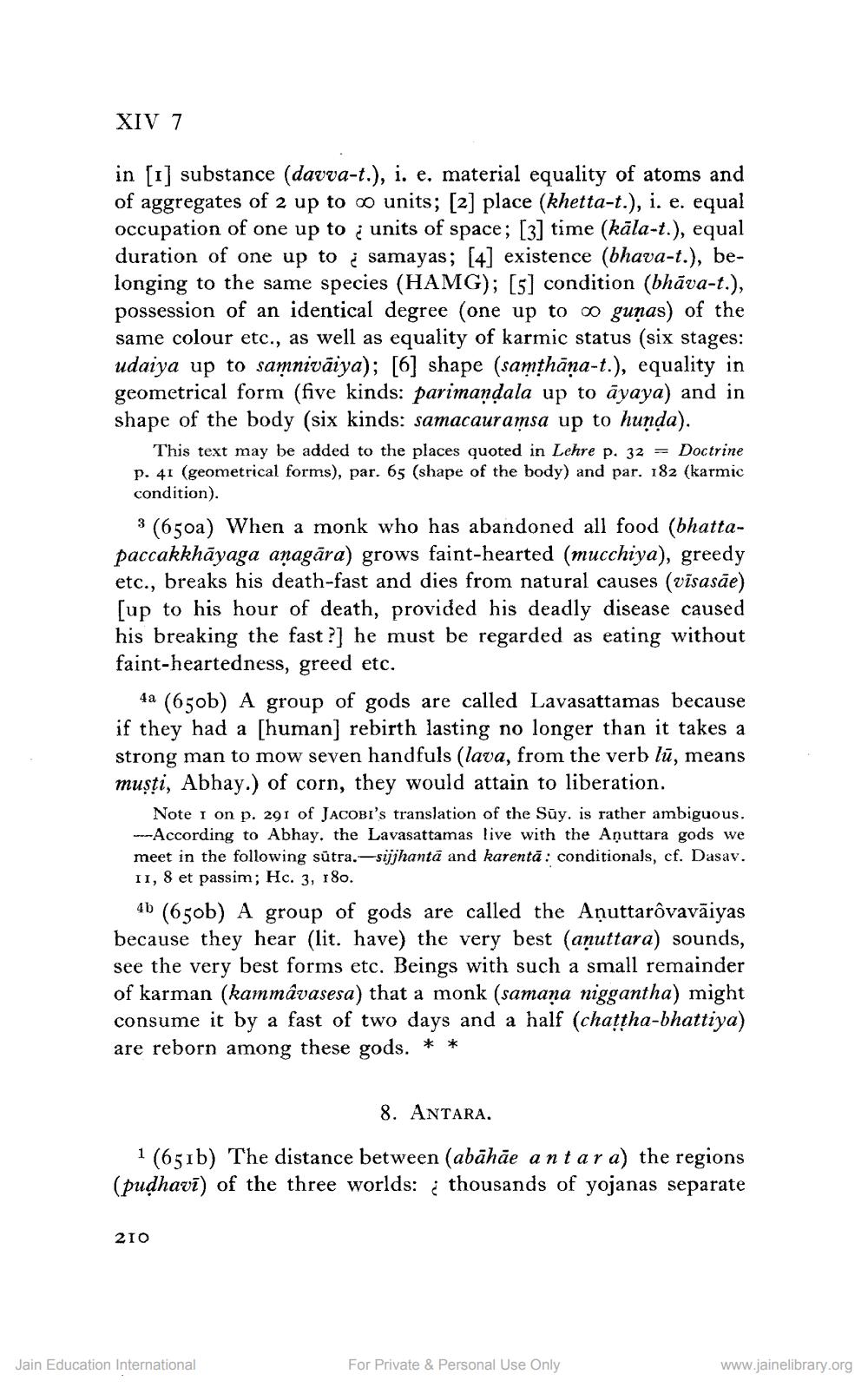________________
XIV 7
in [1] substance (davva-t.), i. e. material equality of atoms and of aggregates of 2 up to ∞ units; [2] place (khetta-t.), i. e. equal occupation of one up to units of space; [3] time (kāla-t.), equal duration of one up to samayas; [4] existence (bhava-t.), belonging to the same species (HAMG); [5] condition (bhāva-t.), possession of an identical degree (one up to ∞o guṇas) of the same colour etc., as well as equality of karmic status (six stages: udaiya up to samnivāiya); [6] shape (samṭhāṇa-t.), equality in geometrical form (five kinds: parimandala up to ayaya) and in shape of the body (six kinds: samacauramsa up to hunda).
This text may be added to the places quoted in Lehre p. 32 = Doctrine p. 41 (geometrical forms), par. 65 (shape of the body) and par. 182 (karmic condition).
3 (650a) When a monk who has abandoned all food (bhattapaccakkhāyaga aṇagāra) grows faint-hearted (mucchiya), greedy etc., breaks his death-fast and dies from natural causes (vīsasāe) [up to his hour of death, provided his deadly disease caused his breaking the fast?] he must be regarded as eating without faint-heartedness, greed etc.
4a (650b) A group of gods are called Lavasattamas because if they had a [human] rebirth lasting no longer than it takes a strong man to mow seven handfuls (lava, from the verb lū, means muşti, Abhay.) of corn, they would attain to liberation.
Note I on p. 291 of JACOBI's translation of the Suy. is rather ambiguous. ---According to Abhay, the Lavasattamas live with the Anuttara gods we meet in the following sutra.-sijjhantā and karentă: conditionals, cf. Dasav. II, 8 et passim; Hc. 3, 180.
4b (650b) A group of gods are called the Anuttarôvavāiyas because they hear (lit. have) the very best (aṇuttara) sounds, see the very best forms etc. Beings with such a small remainder of karman (kammâvasesa) that a monk (samana niggantha) might consume it by a fast of two days and a half (chaṭṭha-bhattiya) are reborn among these gods. * *
8. ANTARA.
1 (651b) The distance between (abāhāe antara) the regions (pudhavi) of the three worlds: thousands of yojanas separate
210
Jain Education International
For Private & Personal Use Only
www.jainelibrary.org




